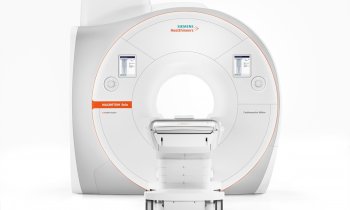Quelle: Pixabay/geralt
News • New study
AI better at spotting heart failure than current tests
Artificial intelligence can help diagnose acute heart failure with more accuracy than current blood tests alone, research suggests. Using AI to combine patient data with results from a test for levels of a protein made by the heart could help doctors spot heart failure sooner and improve patient care, experts say.
Acute heart failure affects nearly one million people in the UK and accounts for five percent of all unplanned hospital admissions. It is a life-threatening condition caused when the heart is suddenly unable to pump blood around the body. Diagnosis is difficult because symptoms, such as shortness of breath and leg swelling, occur in many other illnesses. Previous research has shown that patients who are diagnosed quickly benefit the most from treatment.
Researchers from the University of Edinburgh and 13 other countries combined data from 10,369 patients with suspected acute heart failure to develop a tool – called CoDE-HF – to inform clinicians’ decisions. CoDE-HF uses AI to combine routinely collected patient information with results from a blood test for the heart protein NT-proBNP to produce an estimate of whether they suffered heart failure. The current recommended diagnosis method is to test to see if levels of NT-proBNP are below a certain cut-off value, but this is not widely used as levels can vary depending on an individual’s age, weight and other health conditions.
Recommended article

News • Cardio-imaging
MRI could revolutionise heart failure diagnosis
Using MRI scans to detect heart failure could revolutionise how the condition is diagnosed, thanks to new research from the University of East Anglia and the University of Sheffield.
As well as spotting acute heart failure more accurately than heart protein blood tests on their own, CoDE-HF was especially precise in difficult to diagnose patient groups – such as older people and those with pre-existing medical conditions.
The team are currently conducting further studies to understand how this decision-support tool will work in the hospital environment and influence patient outcomes.
Dr Ken Lee, cardiology specialist registrar and clinical lecturer at the University of Edinburgh, said: “Heart failure can be a very challenging diagnosis to make in practice. We have shown that CoDE-HF, our decision-support tool, can substantially improve the accuracy of diagnosing heart failure compared to current blood tests.”
Mr Dimitrios Doudesis, research fellow and data scientist at the University of Edinburgh, said: “Our study demonstrates that the application of artificial intelligence in healthcare has major potential to help doctors deliver more personalized patient care.”
Professor Nicholas Mills, British Heart Foundation Professor of Cardiology at the University of Edinburgh and Consultant Cardiologist, said: “The application of artificial intelligence in decision-support tools as CoDE-HF to deliver more personalized care is particularly important given our ageing patient population who are living longer with more pre-existing medical conditions. We are currently conducting further studies to identify ways to implement CoDE-HF effectively in routine care.”
Professor Sir Nilesh Samani, Medical Director at the British Heart Foundation, said: “Early detection of acute heart failure is vital to improve outcomes, but in practice accurate diagnosis is challenging, because the main symptom - breathlessness - can be caused by other conditions. The new tool developed in this study identifies people with acute heart failure more accurately, allowing patients to get the lifesaving treatment they need sooner.”
17.06.2022











